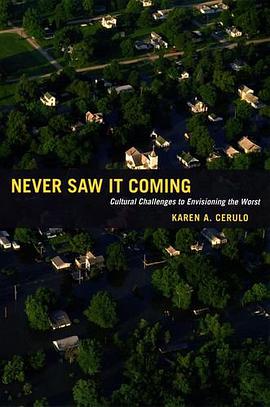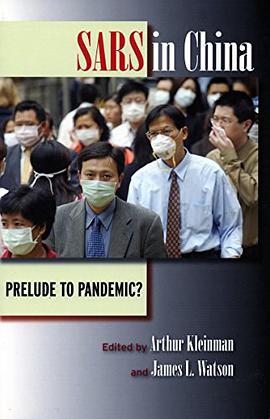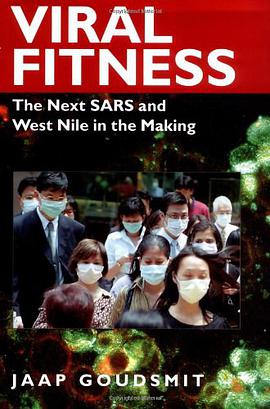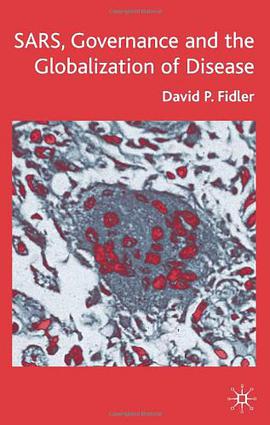Never Saw It Coming 豆瓣
作者:
Karen A. Cerulo
University Of Chicago Press
2006
- 9
People--especially Americans--are by and large optimists. They're much better at imagining best-case scenarios (I could win the lottery!) than worst-case scenarios (A hurricane could destroy my neighborhood!). This is true not just of their approach to imagining the future, but of their memories as well: people are better able to describe the best moments of their lives than they are the worst.
Though there are psychological reasons for this phenomenon, Karen A.Cerulo, in "Never Saw It Coming, " considers instead the role of society in fostering this attitude. What kinds of communities develop this pattern of thought, which do not, and what does that say about human ability to evaluate possible outcomes of decisions and events?
Cerulo takes readers to diverse realms of experience, including intimate family relationships, key transitions in our lives, the places we work and play, and the boardrooms of organizations and bureaucracies. Using interviews, surveys, artistic and fictional accounts, media reports, historical data, and official records, she illuminates one of the most common, yet least studied, of human traits--a blatant disregard for worst-case scenarios. "Never Saw It Coming, " therefore, will be crucial to anyone who wants to understand human attempts to picture or plan the future.
"In "Never Saw It Coming, " Karen Cerulo argues that in American society there is a 'positive symmetry, ' a tendency to focus on and exaggerate the best, the winner, the most optimistic outcome and outlook. Thus, the conceptions of the worst are underdeveloped and elided. Naturally, as she masterfully outlines, there are dramatic consequences to this characterological inability to imagine and prepare for the worst, as the failure to heed memos leading up to both the 9/11 and NASA Challenger disasters, for instance, so painfully reminded us."--Robin Wagner-Pacifici, Swarthmore College "Katrina, 9/11, and the War in Iraq--all demonstrate the costliness of failing to anticipate worst-case scenarios. "Never Saw It Coming" explains why it is so hard to do so: adaptive behavior hard-wired into human cognition is complemented and reinforced by cultural practices, which are in turn institutionalized in the rules and structures of formal organizations. But Karen Cerulo doesn't just diagnose the problem; she uses case studies of settings in which people effectively anticipate and deal with potential disaster to describe structural solutions to the chronic dilemmas she describes so well. "Never Saw It Coming" is a powerful contribution to the emerging fields of cognitive and moral sociology."--Paul DiMaggio, Princeton University
Though there are psychological reasons for this phenomenon, Karen A.Cerulo, in "Never Saw It Coming, " considers instead the role of society in fostering this attitude. What kinds of communities develop this pattern of thought, which do not, and what does that say about human ability to evaluate possible outcomes of decisions and events?
Cerulo takes readers to diverse realms of experience, including intimate family relationships, key transitions in our lives, the places we work and play, and the boardrooms of organizations and bureaucracies. Using interviews, surveys, artistic and fictional accounts, media reports, historical data, and official records, she illuminates one of the most common, yet least studied, of human traits--a blatant disregard for worst-case scenarios. "Never Saw It Coming, " therefore, will be crucial to anyone who wants to understand human attempts to picture or plan the future.
"In "Never Saw It Coming, " Karen Cerulo argues that in American society there is a 'positive symmetry, ' a tendency to focus on and exaggerate the best, the winner, the most optimistic outcome and outlook. Thus, the conceptions of the worst are underdeveloped and elided. Naturally, as she masterfully outlines, there are dramatic consequences to this characterological inability to imagine and prepare for the worst, as the failure to heed memos leading up to both the 9/11 and NASA Challenger disasters, for instance, so painfully reminded us."--Robin Wagner-Pacifici, Swarthmore College "Katrina, 9/11, and the War in Iraq--all demonstrate the costliness of failing to anticipate worst-case scenarios. "Never Saw It Coming" explains why it is so hard to do so: adaptive behavior hard-wired into human cognition is complemented and reinforced by cultural practices, which are in turn institutionalized in the rules and structures of formal organizations. But Karen Cerulo doesn't just diagnose the problem; she uses case studies of settings in which people effectively anticipate and deal with potential disaster to describe structural solutions to the chronic dilemmas she describes so well. "Never Saw It Coming" is a powerful contribution to the emerging fields of cognitive and moral sociology."--Paul DiMaggio, Princeton University



